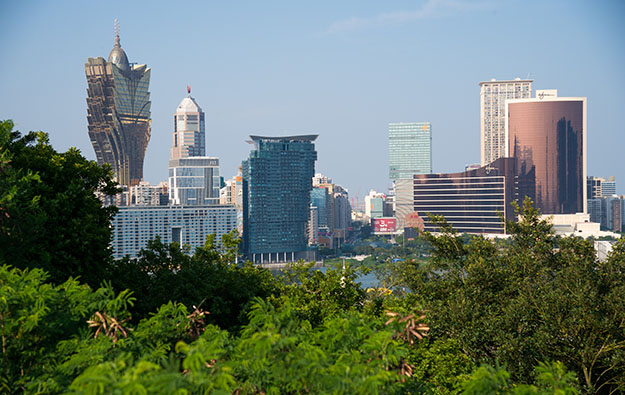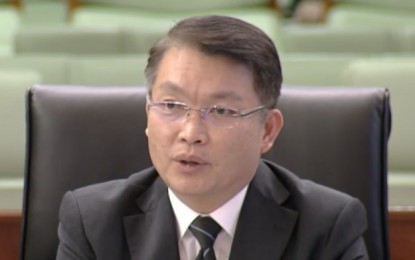Macau concession process can wring casino op change: IMF
Feb 26, 2019 Newsdesk Latest News, Macau, Top of the deck

The International Monetary Fund says the Macau government can use the the opportunity of the likely new public tender process for future gaming rights in the city, to put pressure on the incumbent casino operators to make further, meaningful changes to their business models. That could help promote non-gaming tourism.
But the latest report by the IMF on the Macau economy acknowledged that such changes had to be supported by the kind of tourism infrastructure improvements already being advanced.
“With all six gaming concessions expiring in 2020 and 2022, the authorities have the opportunity to further advance their growth strategy and should craft the new regulations with stronger incentives for operators to expand non-VIP tourism,” the Fund’s report, published on Monday, said.
It was referring to a likely new public tender process for future rights to operate casino business. Currently there are six operators in the market.
“To accommodate the higher number of tourists under a mass-market and non-gaming model, infrastructure plans should advance in order to ease supply-side bottlenecks. Some of these areas are expanded entertainment, convention and exhibition options, hotels and retail, including via integrated resorts and family-oriented facilities,” stated the IMF.
The organisation also noted that the continued close association between discretionary spending by mainland Chinese consumers and the underlying health of Macau’s gaming- and tourism-focused economy continued to pose risk for the city.
The latest IMF report also advised there should be careful use of fiscal revenue from gaming, and recommended preservation of the arrangement that pegs the exchange rate of Macau’s currency the pataca to the Hong Kong dollar.
The report said the Macau economy was particularly vulnerable to economic, financial and policy developments in mainland China. The cumulative risks were “tilted to the downside” for Macau. The report cited as potential threats, reduced investment, banking sector exposures, the United States-China trade war, a tightening of global financial conditions in the case of any unexpected increases in interest rates, and increased competition regionally and globally in the gaming sector.
“With most tourists coming from the [Chinese] mainland, any policy that undermines their spending power abroad would negatively affect growth,” the report says. Were casino gambling to be legalised on the mainland or were there to be weaker-than-expected growth in the mainland economy, those factors would also negatively affect Macau’s economic growth.
The negative outcomes possible included “shocks to gaming revenue, reduced investment, and banking sector exposures to the mainland”.
Competitive threat
The IMF acknowledged the Macau authorities had worked to reduce economic dependence on gaming by relying less on revenue from VIP gaming and more on revenue from mass-market gaming, by attracting more tourists other than gamblers, and by building up the financial services industry.
The report added that emerging gaming centres in Asia could have an impact by diverting mainland Chinese tourists from Macau.
The IMF report tracked the recovery of the Macau economy since the middle of 2016. It is part of a regular survey by fund officials. Details from the previous two missions to Macau were published in 2014 and 2016.
“Gaming and tourism revenue returned to strong growth in 2017 and early 2018, after negative growth over 2014 to 2016 following developments in mainland China that reduced external demand from high-spending visitors (i.e., VIP),” the report said. “Growth moderated in the second half of 2018, including from weaker investment and reduced VIP gaming linked to [the] mainland’s de-leveraging effort and US-China trade tensions.”
One recommendation of the report – that might have fresh implications for the business performance of the city’s VIP gambling segment – is a recommendation further to strengthen measures to reduce the risk of money laundering and to combat the financing of terrorism. While previous IMF reports have recommended Macau’s casinos improve financial control measures, the current report said progress had been made. It said “efforts to limit the number of junket promoters… could be supported by an upgraded regulatory framework.”
The IMF estimated that the annual rate of growth in gross domestic product in Macau slowed to 5.6 percent last year from 9.7 percent in 2017.
Related articles
-
 Macau 3Q GDP up 5pct driven by...
Macau 3Q GDP up 5pct driven by...Nov 18, 2024
-
 IMF lowers Macau 2024 GDP growth...
IMF lowers Macau 2024 GDP growth...Oct 23, 2024
More news
-
 Macau to get 36mln visitors in 2025:...
Macau to get 36mln visitors in 2025:...Nov 21, 2024
-
 EBITDA a focus in Macau market share...
EBITDA a focus in Macau market share...Nov 21, 2024
Latest News
Nov 21, 2024
Macau’s 2025 visitor tally could reach 36 million, or a circa 9-percent gain on this year’s projected 33 million. So said Lei Wai Nong (pictured in a file photo), the city’s Secretary for...Sign up to our FREE Newsletter
 (Click here for more)
(Click here for more)
Pick of the Day
”[Baccarat side bets in Macau] are becoming more popular amongst players, based on what we observed when we conducted our [monthly premium mass] table surveys”
George Choi and Timothy Chau
Analysts at Citigroup
Most Popular
 Gaming technology firm IGT reports hacking incident November 21, 2024
Gaming technology firm IGT reports hacking incident November 21, 2024  US$30bln 2025 GGR target achievable for Macau: CE November 19, 2024
US$30bln 2025 GGR target achievable for Macau: CE November 19, 2024  Marina Bay Sands projects 40pct EBITDA leap post extension November 20, 2024
Marina Bay Sands projects 40pct EBITDA leap post extension November 20, 2024  Macau big-event outdoor venue gets trial run Dec 28: CE November 20, 2024
Macau big-event outdoor venue gets trial run Dec 28: CE November 20, 2024  Future of gaming is the online format: Pagcor chairman November 20, 2024
Future of gaming is the online format: Pagcor chairman November 20, 2024









